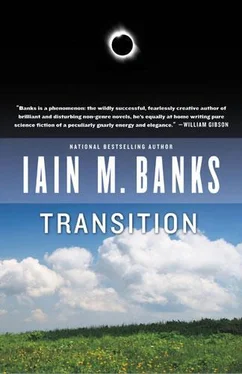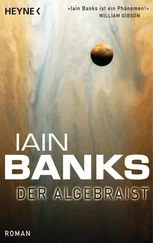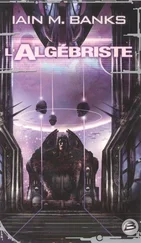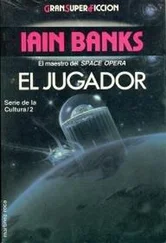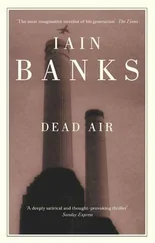Despite the fact that lives had been saved and the terrorist himself was still very much alive, certain sections of the press and some politicians nevertheless wanted the man to be prosecuted and thrown out of the police force for what he had done. Eventually, as I recalled, he was hounded out of the force and was charged with criminal assault. He refused defence counsel, saying he would defend himself, then at the trial he said nothing. He was jailed for only a couple of years, but things went badly for him in prison and he spent nearly ten years inside. In that time his children grew up and his wife divorced him, moving away and remarrying.
He had slipped from public consciousness in the intervening decade, filled as it was with so much violence and treachery. He had been released earlier this year and now had ended up in the hands of the police again, scheduled to be questioned. I felt there was an untold story here, and there were puzzling details that I had never heard had been cleared up. I was unable to contain my curiosity and took over the case myself. This was not actually against regulations but it was highly irregular, the sort of thing you could get away with once or twice but which, done consistently, would be noted in your file.
He was an ordinary-looking man. Medium build, pale skin, short receding brown hair and a resigned, beaten look on his face. There might have been some defiance in his eyes, though perhaps that was just my own prejudice. He had been beaten up at some point in the last few days, judging from the bruising on his face. He was still dressed and his hands were handcuffed and chained to the floor behind him, though he was otherwise unrestrained and was seated normally.
I sat in front of him in another chair. I even put myself within kicking distance of his feet with nothing in between, which I would never normally do. A junior officer sat to one side monitoring the recording equipment but took no part in the subsequent proceedings.
I began by asking Subject 47767 if he was who I thought he was. He confirmed that he was. We used his real first name throughout. It was Jay. I asked him why he thought he was here.
He laughed bitterly. “I hit the wrong person.”
I asked who that might have been.
“The son of the Justice Minister.” He gave a sour smile.
I asked why he had hit him.
“Because I’m sick to the back teeth of vicious, ignorant dickheads telling me what a fucking hero I am.”
I asked him if he meant because of what had happened with the terrorist he had tortured to discover the location of the bomb.
Jay shook his head and looked away. “Oh, let me guess. I’m a hero figure to people like you, would that be right?”
I said that many people admired what he had done, amongst them, certainly, myself.
“Yeah, well, you would, wouldn’t you?” he replied.
I asked if he meant because of what he obviously – and correctly – took to be my role.
He nodded. “Because you’re a torturer,” he said. He looked straight into my eyes as he said this. I am well used to staring people down, but he would not look away.
I told him that even if I was not, I would still admire him because of what he had done.
“You and every other idiot,” he said. He said it more with resignation than defiance, thought there was an understandable hint of nervousness too. He swallowed conspicuously.
I asked if he didn’t feel proud of what he had done.
“No,” he said. “No, I fucking don’t.”
But he had saved lives, I pointed out.
“I did what I thought I had to do,” Jay said.
Would he do the same thing again, knowing what he did now?
“I don’t know.”
Why not? I asked.
“Because I don’t know what might have happened differently if I hadn’t done it. Probably nothing would have been any different so I suppose I might as well have done what I did. A few people may still be alive who wouldn’t have been otherwise, but who knows? We haven’t got a time machine.”
What did he think might have happened differently?
“We might not live in a society where people live in fear of people like you,” he told me. He shrugged. “But, like I say, probably it would still all have worked out just like it is now. I don’t kid myself that what I might have done differently would have made any difference.”
I said I thought he was wrong to assume the current state of our society was somehow his fault. The fault lay with the people who threatened our society: terrorists, radicals, leftists, liberals and other traitors – those who would like to tear down the state either through direct action or through using words and propaganda to influence the more gullible sections of the masses to do their dirty work for them.
“Yeah, you would think that, too.” Jay sounded tired.
I told him I thought it was tough that he’d ended up in prison. He should never have been prosecuted in the first place and certainly should never have been found guilty. He should have been given a medal, not sent to prison. That had probably ruined his life. Especially as they had kept him in for so long.
“Here we go,” he said, sounding tired again. “You don’t understand anything, do you?”
If he thought that, I said, perhaps he ought to tell me what he thought I ought to understand.
“I insisted that I should be prosecuted. I demanded that I be prosecuted. I refused a defence because I’d wanted to plead guilty but they wouldn’t let me. They threatened my family. So I had to plead innocent. But then I offered no defence and so I was found guilty. They sentenced me to two years but the correct sentence, the least anybody else would have got would have been nine years, so I made sure I stayed in prison for that amount of time. Having time added is not difficult.” Jay smiled without humour. “And when I got out I told anybody who accused me of being a hero that they were an idiot, and people who said I should have got a medal to fuck off. Finally, when one guy got too insistent about how big a hero I was and how he could make sure that I did get a medal, I hit him. Only it turned out he was the son of the Justice Minister, like I said. And that’s why I’m here.”
I told him I didn’t understand. Why had he wanted to be prosecuted? Why had he wanted to be found guilty? Why had he wanted to be locked up for nine years?
Jay sounded animated at last. He held his head up. “Because I believe in justice.” He spat that word out. “I believe in the law.” That word too. “I did something wrong, something against the law, and I needed to be punished for it. It was wrong that I was going to be let off for it. Even more wrong that people wanted to give me medals for it.”
But he hadn’t done something wrong, I suggested. He had saved innocent lives and helped defeat those who would bring society down.
“It was still against the law !” he shouted. “Don’t you see? If the law means anything then I couldn’t be above it. Not just because I was a police officer or because my breaking it had resulted in some lives being saved. That’s not the point. Torture was illegal. I’d broken the law. Can’t you see any of this?” He shook his the chair, rattling the chains attaching his handcuffs to the floor. “It’s even more important to prosecute police who’ve broken the law than it is to prosecute anybody else, because otherwise nobody trusts the police.”
I pointed out that the forceful questioning of suspects was now entirely if unfortunately legal, even if it hadn’t been then.
“‘Forceful questioning.’ You mean torture.”
If that was what he wanted to call it. But why hadn’t he made his feelings clear to all these newspapers that wanted to talk to him? Or at his trial, where, of all places, he was guaranteed a fair hearing?
Читать дальше
